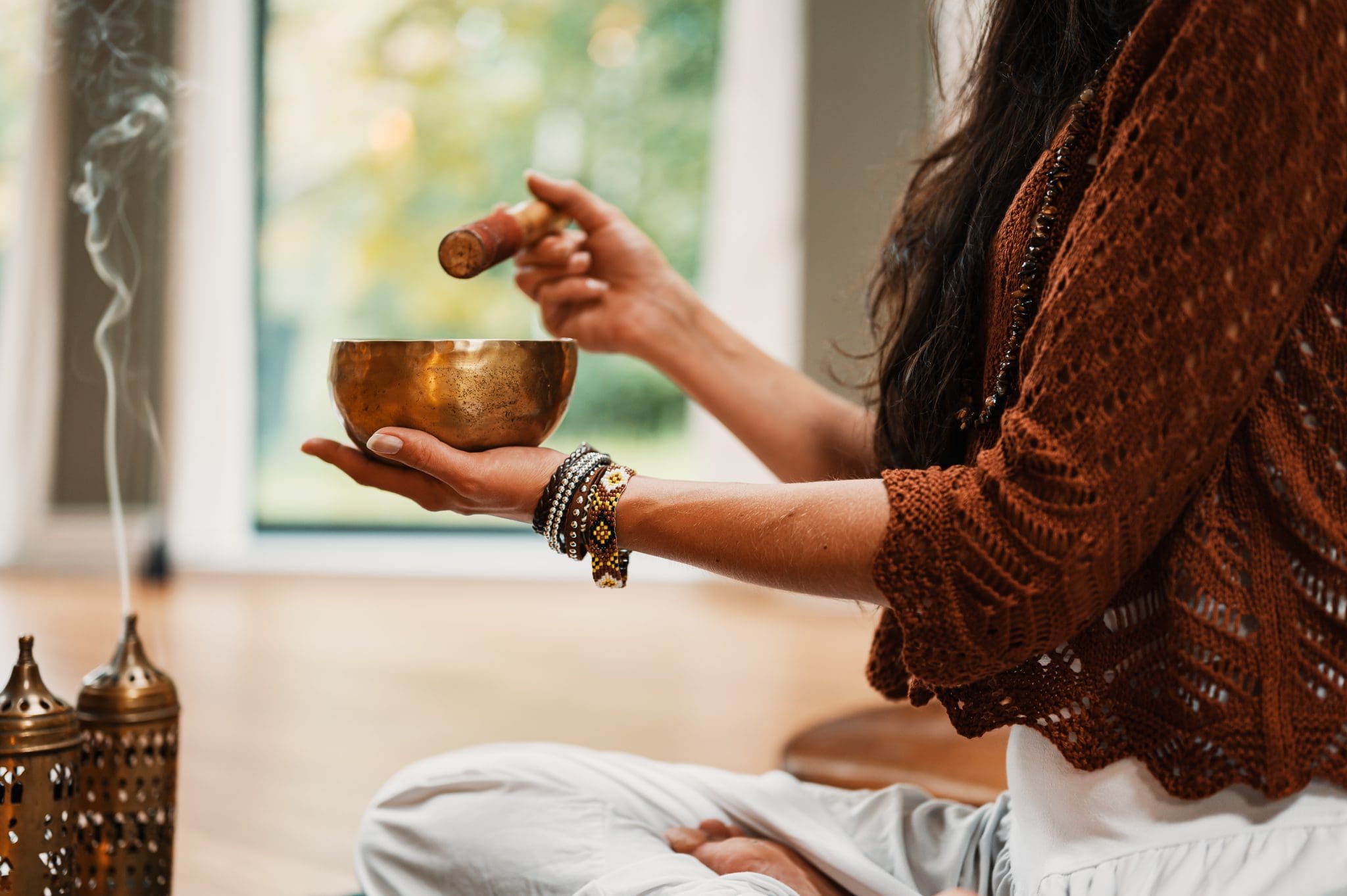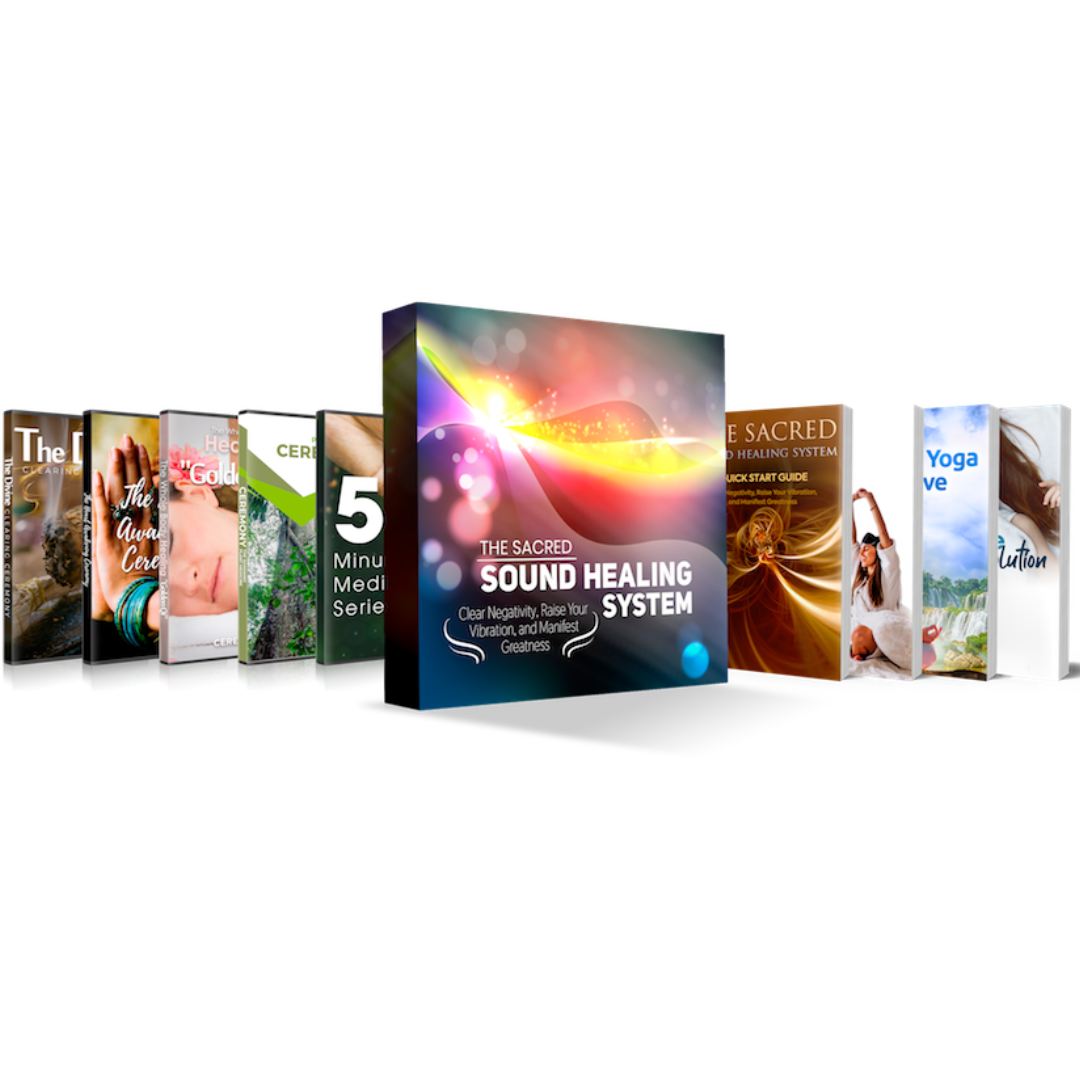Full Disclosure: Clicking on these links could mean a tiny commission for me, at no extra cost to you.
Do you feel overwhelmed and exhausted by life’s challenges? Are you finding it difficult to chalk out a way to manage your mounting stress and anxiety levels? It may be time to explore meditation’s powerful and life-changing benefits. Through meditation, you can unlock a sense of inner peace, clarity and well-being, allowing you to regain control of your life. Read on to discover how to use meditation for reducing stress and anxiety and transforming your life.

Ways to Use Mindfulness Meditation
With the multiple benefits of meditation for anxiety and stress relief, it is no wonder that mindfulness meditation has become a popular practice. Studies have found that meditation can assist in reducing stress levels and improving cognitive functioning while reducing physical symptoms of stress, such as headaches and muscle tension. With the balanced combination of mental and physical relaxation, mindfulness meditation can help cultivate peace and clarity.
Mindfulness meditation can involve several techniques, such as body scanning, visualization and breathing exercises. Body scanning involves slowly focusing on each part of the body and visualizing tension leaving them while breathing exercises involve focusing on inhaling and exhaling. Visualization is an important part of mindfulness meditation and involves picturing a peaceful or calming scene.
Aromatherapy with Meditation
Aromatherapy is a holistic form of natural healing involving essential oils to promote health and well-being and can be used with meditation for reducing stress. These oils are obtained from plants and can be inhaled, applied topically, or diffused in the air. Research suggests that aromatherapy can be an effective tool for reducing stress and anxiety. It activates olfactory receptors in the nose, sending signals to certain brain parts.
These signals can trigger the release of the hormone (serotonin), which aids in regulating mood and promote relaxation. While the effects of aromatherapy on stress can vary from person to person, the common essential oils used for this purpose include lavender, bergamot and chamomile. The key is experimenting with different essential oils to find what works best.
Connect With Nature
The power of nature has long been a source of comfort and relaxation for those seeking to reduce stress and anxiety. It can also serve as a way to distract from unhealthy behaviors like drinking too much alcohol. Spending time in nature can be a source for providing a calming, peaceful environment and can effectively manage even signs of alcoholism.
Connecting with the natural environment helps break the addiction cycle and allows the body to return to homeostasis. Being surrounded by picturesque views of nature lowers stress hormones and promotes well-being. Walking in the woods, swimming in a lake or simply sitting on the beach can help reduce stress and anxiety. With the sound of birds, rustling leaves and tranquil waters, the natural environment can be an ideal place to relax and refocus.
Engage in Sound Healing
When the body and mind are burdened by too much stress, sound healing is one of the most effective ways to restore balance. It refers to using specific frequencies, such as Tibetan and crystal singing bowls, tuning forks or chimes, to reduce stress, promote relaxation and soothe the body’s energy. Sound healing helps to reduce the toxic effects of negative thinking, allowing us to return to a state of balance and peace.
————————————————— Scroll to continue reading—————————————————
Moreover, it can improve the ability to focus, heighten intuition and creativity and provide much-needed therapy for body aches. By listening to and experiencing sound healing, practitioners can benefit from its therapeutic effects and enjoy greater well-being. Furthermore, sound healing practices provide an opportunity for self-reflection and calming the mind, body and spirit. Ultimately, it can help reduce stress and anxiety by helping to restore balance in our emotions, thoughts and physical health.
Try Different Grounding Techniques
Grounding meditation can help manage stress and anxiety by grounding a person in the present moment rather than allowing their mind to wander and become overwhelmed by thoughts of the past and future. Grounding techniques involve physical or mental activities that help a person to focus on sensory inputs, such as sight, sound, taste, smell and touch. These include deep breathing exercises, focusing on the five senses, progressive muscle relaxation and more.
Deep breathing exercises involve focusing on each breath, counting the length of inhalation and exhalation and noticing the sensation of air entering and leaving the body. Focusing on the five senses encourages a person to take notice of their surroundings by listening to sounds, observing changes in the environment and appreciating the taste, smell and texture of everyday objects.
Progressive muscle relaxation involves sequentially tensing and relaxing each muscle group from head to toe, paying attention to the sensations of tension and then release.
Practice Yoga & Movement
The human body and mind are naturally resilient. Yoga and other mindful forms promote physical and mental well-being. Certain poses, such as downward-facing dog, can help relieve muscle tension and stimulate circulation to aid relaxation. Gentle stretching exercises can also help release body tension while promoting better posture and muscle tone.
Moving the body consciously and mindfully can also help decrease stress hormones like cortisol and adrenaline, which have been linked to anxiety. Additionally, yoga and mindful movements can help bring the mind to a calm, focused state. Breathing exercises, such as pranayama, can assist in slowing down the heart rate and deepening the breath, creating a relaxed state of physical and mental balance.
Studies suggest that mindful movements can help to build a sense of connection with oneself and one’s environment. Hence, practicing yoga can help to create a deep sense of inner peace and harmony while connecting the practitioner with something larger than themselves.
————————————————— Scroll to continue reading—————————————————
Meditation for reducing stress and anxiety comes in many forms and can be the secret to living healthier, balanced lives. Anyone can practice it regardless of age, health, or lifestyle. Through regular meditation and mindfulness, individuals can develop increased self-awareness and emotional regulation skills that will help them manage stress and anxiety more effectively. With regular meditation practice, individuals can reap the many benefits of living a less-stressed and more mindful life.










